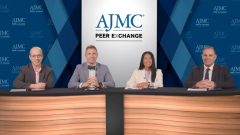
Reaching Everyone: Hidradenitis Suppurativa Care for Underserved Communities
Panelists discuss the importance of clear communication, financial support, and leveraging telehealth and peer networks to improve equitable access and adherence to specialized care and treatment for underserved patients with hidradenitis suppurativa.
Episodes in this series

Access to specialized care and treatment remains uneven, particularly for underserved populations. A critical first step in improving equitable access is ensuring patients truly understand their diagnosis and treatment plans. Language barriers often prevent clear communication, causing missed appointments or nonadherence. Using professional translators and simplifying explanations to a basic, everyday level can bridge this gap. Training staff to communicate in a way that patients and their families easily comprehend helps foster trust and engagement, which is essential for effective care.
Affordability is another major obstacle. Many advanced therapies come with high costs, and insurance coverage can be restrictive, leading to step therapy requirements and other delays. To address this, care teams should actively seek out financial assistance programs, co-payment cards, and foundations that help reduce out-of-pocket expenses. Additionally, logistical challenges such as transportation can hinder access, especially when patients must travel long distances for infusions or specialist visits. Telehealth has emerged as a valuable tool to overcome some of these barriers by allowing providers to connect with patients in their homes, understand their unique challenges, and tailor solutions accordingly.
Ongoing, clear communication throughout the treatment journey is vital to ensure patients know what to expect and feel supported. Keeping care coordinated within an integrated health system enhances continuity and allows pharmacists and providers to collaborate directly, which improves medication adherence. Peer support networks also play a crucial role, offering patients a community that can share practical advice and emotional encouragement. Regular check-ins to monitor treatment progress and address adverse effects help maintain engagement and reinforce that patients are not alone in their care. This proactive, patient-centered approach can significantly improve outcomes and help change the narrative around managing complex diseases.
Newsletter
Stay ahead of policy, cost, and value—subscribe to AJMC for expert insights at the intersection of clinical care and health economics.







